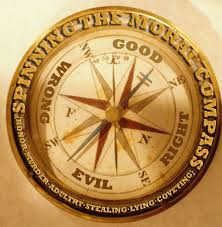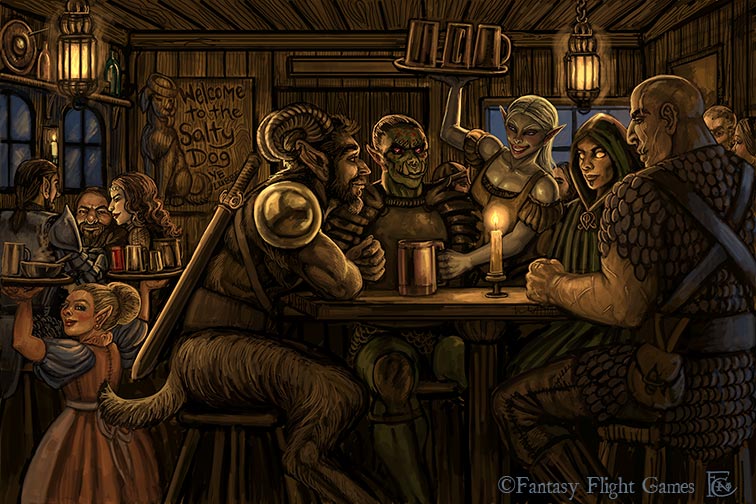It looks like you're using an Ad Blocker.
Please white-list or disable AboveTopSecret.com in your ad-blocking tool.
Thank you.
Some features of ATS will be disabled while you continue to use an ad-blocker.
2
share:
We know what ethics were like in the past -

Notice this, Socrates has probably affected ethics for thousands of years after he wrote. However, he is talking about joy, about being good, about caring for people and watching out for your fellow human.
Where we are now is not that place.
Our ethics are changing. For one thing, with women in the workforce, a lot of people seem to be putting work ahead of family. And with work usually being for big corporations, it could end up being more about how much you can screw the other person over than it is about how much you could make the world a better place.
I have proof for this, actually, as corporations tend to function in a similar manner to psychopaths when behavioral analysis is used to compare behaviors. As they are now human, this is valid, right?
I actually don't mean to sound sexist here - not towards the corporations (what sex are they, exactly?), but towards women, I mean - I am picking up what I read from a few BBC Business articles and reading between the lines. Personally, I don't like the world of big business or anything dealing with it, I prefer community businesses - and you can see why I don't like the business world in a minute.
This next article is going to be about bonuses not being equal between men and women, and while I agree with that, it has some subtext that is unrelated.

Bonus Time: Why It's Still a Man's World (BBC)
Of course, we are not going to be talking about the main topic of these articles, but reading between the lines.
What I want to point out here is that feeling that you have to fight for what you deserve, and this survival of the fittest mentality (an interesting one to appear in the U.S. and U.K. following my brief research into Nazi influence in the C.I.A.).
However, I do understand how that is a decent strategy to turn to given the financial crisis and the fact that a lot of people have been out of work. It is kind of expected, honestly, and hopefully we can all relax again after a brief period of crazy... fights for dominance.
I have to digress and say that some of the article in this case was pleasant to read.
So here we go, we are returning to a society where we are able to bring up important issues instead of ignoring them to be "polite" and "politically correct." That's a plus, in some ways? Also, I'm glad that women are moving forward in the workplace.
My point, with regard to families, is more about families. Is the family more important, or is the corporation?

Virtue ethics describes the character of a moral agent as a driving force for ethical behavior, and is used to describe the ethics of Socrates, Aristotle, and other early Greek philosophers.
Socrates (469 BC – 399 BC) was one of the first Greek philosophers to encourage both scholars and the common citizen to turn their attention from the outside world to the condition of humankind. In this view, knowledge having a bearing on human life was placed highest, all other knowledge being secondary.
Self-knowledge was considered necessary for success and inherently an essential good. A self-aware person will act completely within his capabilities to his pinnacle, while an ignorant person will flounder and encounter difficulty. To Socrates, a person must become aware of every fact (and its context) relevant to his existence, if he wishes to attain self-knowledge.
He posited that people will naturally do what is good, if they know what is right. Evil or bad actions are the result of ignorance. If a criminal was truly aware of the intellectual and spiritual consequences of his actions, he would neither commit nor even consider committing those actions. Any person who knows what is truly right will automatically do it, according to Socrates.
While he correlated knowledge with virtue, he similarly equated virtue with joy. The truly wise man will know what is right, do what is good, and therefore be happy.[7]
Notice this, Socrates has probably affected ethics for thousands of years after he wrote. However, he is talking about joy, about being good, about caring for people and watching out for your fellow human.
Where we are now is not that place.
Our ethics are changing. For one thing, with women in the workforce, a lot of people seem to be putting work ahead of family. And with work usually being for big corporations, it could end up being more about how much you can screw the other person over than it is about how much you could make the world a better place.
I have proof for this, actually, as corporations tend to function in a similar manner to psychopaths when behavioral analysis is used to compare behaviors. As they are now human, this is valid, right?
I actually don't mean to sound sexist here - not towards the corporations (what sex are they, exactly?), but towards women, I mean - I am picking up what I read from a few BBC Business articles and reading between the lines. Personally, I don't like the world of big business or anything dealing with it, I prefer community businesses - and you can see why I don't like the business world in a minute.
This next article is going to be about bonuses not being equal between men and women, and while I agree with that, it has some subtext that is unrelated.

Bonus Time: Why It's Still a Man's World (BBC)
Of course, we are not going to be talking about the main topic of these articles, but reading between the lines.
Think like a wolf
Above all, be confident. Munich-based Anne Frisch, a former chief financial officer for many international companies, suggested approaching any meeting about salary or bonus with a strong mental image that helps you remember that resources are limited and you need to fight for what you deserve.
She has used imagery of a wolf fighting for food among its pack and a lioness defending her cubs. “This [visualisation] really gives me the drive to claim my fair share,” said Frisch, now a board member for EPWN.
What I want to point out here is that feeling that you have to fight for what you deserve, and this survival of the fittest mentality (an interesting one to appear in the U.S. and U.K. following my brief research into Nazi influence in the C.I.A.).
However, I do understand how that is a decent strategy to turn to given the financial crisis and the fact that a lot of people have been out of work. It is kind of expected, honestly, and hopefully we can all relax again after a brief period of crazy... fights for dominance.
I have to digress and say that some of the article in this case was pleasant to read.
Madrid-based Marijo Bos learned this early in her career. While working as a headhunter, she heard co-workers talking, and realised that her male counterparts’ total cash compensation was higher than hers. She immediately asked her supervisors about the discrepancy. Bos, who today is president of the European Professional Women’s Network (EPWN), was lucky: After reviewing her file, her supervisors at that early job raised her salary and bonus.
There are better ways to go about getting equal pay for equal work, however. Rather than waiting until the last minute, lay the groundwork throughout the year. To maximise your earnings, ask if you are on track for the highest levels of compensation, make sure you know what kinds of accomplishments lead to bonuses and raises and make sure your successes are clear to your supervisor.
So here we go, we are returning to a society where we are able to bring up important issues instead of ignoring them to be "polite" and "politically correct." That's a plus, in some ways? Also, I'm glad that women are moving forward in the workplace.
My point, with regard to families, is more about families. Is the family more important, or is the corporation?
edit on 6-9-2013 by darkbake
because: (no reason given)
The Downside of Being Nice at Work - BBC
There is definitely a point here about being up-front and combative and cut-throat to get ahead, and in our society, it is not a bad choice to make -
But look where the direction of the compass has shifted. It is not about community, or about making sure everyone is happy, or even about making sure you are happy, or about making sure your non-existent family is happy.
The focus has shifted to the corporation, and to money, and to power, and to individual social Darwinism, quite honestly.

You have to look where the moral compass is pointing to understand what these articles are really saying. What caused the shift? Sure, the articles give great ways to increase your money and individual power and corporate profits.
But what about ways to increase happiness, or build your personal life, or family life, or anything besides what a corporation wants from your soul?

If you think about small businesses, for example, a local tavern back in the day, the owner would probably benefit from being altruistic and a good host. He might even know who he is renting out his rooms to and make sure they are doing okay.

But in today's world, it is better to cut corners wherever possible to make the most money.
Maybe nice guys really do finish last.
Is it possible that being too agreeable or too nice in your dealings with customers, colleagues, subordinates or supervisors? Could kindness be holding you back in your career, or be stunting your ability to get a better deal? Several LinkedIn Influencers weighed in on the downside of nice this week.
One example McKeown gave: “I once worked with just such an executive. He spoke with a soft, quiet voice. He never interrupted anyone... Every time the team became [frustrated] and ready to make the change necessary to get to the next level he would stand up and say sweetly, ‘Oh, I just wanted to remind you all of how far we have come.’ And after a few more sentences the spark of aspiration was gone from the room. He unintentionally signalled the status quo was plenty good enough. There was no need to try harder or change how things were going.”
That attitude can make workers complacent. “The cumulative effect on your career can be dramatic,” McKeown wrote.
How can you tell if your manager is so nice that he or she is hurting your career?
There is definitely a point here about being up-front and combative and cut-throat to get ahead, and in our society, it is not a bad choice to make -
But look where the direction of the compass has shifted. It is not about community, or about making sure everyone is happy, or even about making sure you are happy, or about making sure your non-existent family is happy.
The focus has shifted to the corporation, and to money, and to power, and to individual social Darwinism, quite honestly.

You have to look where the moral compass is pointing to understand what these articles are really saying. What caused the shift? Sure, the articles give great ways to increase your money and individual power and corporate profits.
But what about ways to increase happiness, or build your personal life, or family life, or anything besides what a corporation wants from your soul?

If you think about small businesses, for example, a local tavern back in the day, the owner would probably benefit from being altruistic and a good host. He might even know who he is renting out his rooms to and make sure they are doing okay.

But in today's world, it is better to cut corners wherever possible to make the most money.
edit on 6-9-2013 by darkbake because: (no reason
given)
edit on 6-9-2013 by darkbake because: (no reason given)
edit on 6-9-2013 by darkbake because: (no reason
given)
edit on 6-9-2013 by darkbake because: (no reason given)
Growing up with a high ethical standard has presented a lot of internal conflicts when being confronted with how the world works. I do not blame my
elders for providing a more idealist ethical framework rather than a more realistic one. In learning from their past mistakes we are just trying to
move towards a better world.
The part about self awareness in defining your own ethics came across as an unusual connection at first, but does make a lot of sense on reflection. Awareness of our repercussions is also an important factor in developing ethics. Just because you may not see the chicken in the cage or pig in the pen as we buy our cheep food does not limit our responsibility, ownership and participation of these practices. As a consumer we may be ignorant, misinformed or in denial with the influence of our decisions, but it is still our decisions and actions that define who we are and the world we live in.
As for good guys coming last, if you are playing life by a different set of rules then comparisons are hard to make. If one side is playing basket ball they will get a lot of hoops, with the other side playing base ball they will get more home runs.
The part about self awareness in defining your own ethics came across as an unusual connection at first, but does make a lot of sense on reflection. Awareness of our repercussions is also an important factor in developing ethics. Just because you may not see the chicken in the cage or pig in the pen as we buy our cheep food does not limit our responsibility, ownership and participation of these practices. As a consumer we may be ignorant, misinformed or in denial with the influence of our decisions, but it is still our decisions and actions that define who we are and the world we live in.
As for good guys coming last, if you are playing life by a different set of rules then comparisons are hard to make. If one side is playing basket ball they will get a lot of hoops, with the other side playing base ball they will get more home runs.
reply to post by darkbake
What's goin on with that white haired guy in the last photo and how does that relate to the thread? I read it twice and couldn't find anything that seemed to explain the presence of this photo. It looks like someone being detained at some kind of gathering like a town hall meeting. I can see how the general topic of detaining a person could definitely be related to ethics, but other than that, I'm left clueless.
I certainly enjoyed the Socrates stuff and how it compares with modern ideas. Modern ideas suck! Go ancients!
What's goin on with that white haired guy in the last photo and how does that relate to the thread? I read it twice and couldn't find anything that seemed to explain the presence of this photo. It looks like someone being detained at some kind of gathering like a town hall meeting. I can see how the general topic of detaining a person could definitely be related to ethics, but other than that, I'm left clueless.
I certainly enjoyed the Socrates stuff and how it compares with modern ideas. Modern ideas suck! Go ancients!
reply to post by 3n19m470
That's a good question about that photo, the other photos were really great finds on Google Images for what I wanted to convey, but that one was not the best choice...
I was looking for something that involved corporations, and I guess it is supposed to represent the chaos and hostility of a corporate first lifestyle versus the community of previous lifestyles.
I kind of slipped, though, and posted a photo without finishing looking for a better one because I was probably getting tired or something.
That's a good question about that photo, the other photos were really great finds on Google Images for what I wanted to convey, but that one was not the best choice...
I was looking for something that involved corporations, and I guess it is supposed to represent the chaos and hostility of a corporate first lifestyle versus the community of previous lifestyles.
I kind of slipped, though, and posted a photo without finishing looking for a better one because I was probably getting tired or something.
edit on 10-9-2013 by darkbake because: (no reason given)
kwakakev
As for good guys coming last, if you are playing life by a different set of rules then comparisons are hard to make. If one side is playing basket ball they will get a lot of hoops, with the other side playing base ball they will get more home runs.
I guess that is definitely true. I like the analogy a lot, actually.
3n19m470
I certainly enjoyed the Socrates stuff and how it compares with modern ideas. Modern ideas suck! Go ancients!
Yeah, thanks I agree. Actually, I think Socrates and the Ancient Greeks influenced a lot of our culture at least in the past few decades, although I think there has been a definite shift.
We could be moving in cycles (the prevailing theory is on 80 year cycles broken into 20 year periods), or maybe life as a human just gets worse over time -
In all honesty, it isn't easy to tell without actually time-travelling and seeing what the quality of life is like first-hand in different time periods.
On the plus side, our new emoticons look like hieroglyphs.
edit on 10-9-2013 by darkbake because: (no reason given)
new topics
-
Las Vegas UFO Spotting Teen Traumatized by Demon Creature in Backyard
Aliens and UFOs: 2 hours ago -
2024 Pigeon Forge Rod Run - On the Strip (Video made for you)
Automotive Discussion: 3 hours ago -
Gaza Terrorists Attack US Humanitarian Pier During Construction
Middle East Issues: 4 hours ago -
The functionality of boldening and italics is clunky and no post char limit warning?
ATS Freshman's Forum: 5 hours ago -
Meadows, Giuliani Among 11 Indicted in Arizona in Latest 2020 Election Subversion Case
Mainstream News: 5 hours ago -
Massachusetts Drag Queen Leads Young Kids in Free Palestine Chant
Social Issues and Civil Unrest: 5 hours ago -
Weinstein's conviction overturned
Mainstream News: 7 hours ago -
Supreme Court Oral Arguments 4.25.2024 - Are PRESIDENTS IMMUNE From Later Being Prosecuted.
Above Politics: 8 hours ago -
Krystalnacht on today's most elite Universities?
Social Issues and Civil Unrest: 8 hours ago -
Chris Christie Wishes Death Upon Trump and Ramaswamy
Politicians & People: 9 hours ago
top topics
-
Krystalnacht on today's most elite Universities?
Social Issues and Civil Unrest: 8 hours ago, 9 flags -
Supreme Court Oral Arguments 4.25.2024 - Are PRESIDENTS IMMUNE From Later Being Prosecuted.
Above Politics: 8 hours ago, 8 flags -
Weinstein's conviction overturned
Mainstream News: 7 hours ago, 7 flags -
University of Texas Instantly Shuts Down Anti Israel Protests
Education and Media: 11 hours ago, 6 flags -
Gaza Terrorists Attack US Humanitarian Pier During Construction
Middle East Issues: 4 hours ago, 5 flags -
Meadows, Giuliani Among 11 Indicted in Arizona in Latest 2020 Election Subversion Case
Mainstream News: 5 hours ago, 5 flags -
Massachusetts Drag Queen Leads Young Kids in Free Palestine Chant
Social Issues and Civil Unrest: 5 hours ago, 4 flags -
Las Vegas UFO Spotting Teen Traumatized by Demon Creature in Backyard
Aliens and UFOs: 2 hours ago, 3 flags -
Chris Christie Wishes Death Upon Trump and Ramaswamy
Politicians & People: 9 hours ago, 2 flags -
2024 Pigeon Forge Rod Run - On the Strip (Video made for you)
Automotive Discussion: 3 hours ago, 2 flags
active topics
-
Supreme Court Oral Arguments 4.25.2024 - Are PRESIDENTS IMMUNE From Later Being Prosecuted.
Above Politics • 76 • : YourFaceAgain -
The Acronym Game .. Pt.3
General Chit Chat • 7750 • : bally001 -
-@TH3WH17ERABB17- -Q- ---TIME TO SHOW THE WORLD--- -Part- --44--
Dissecting Disinformation • 681 • : MetalThunder -
Chris Christie Wishes Death Upon Trump and Ramaswamy
Politicians & People • 20 • : chr0naut -
Las Vegas UFO Spotting Teen Traumatized by Demon Creature in Backyard
Aliens and UFOs • 7 • : rickymouse -
Meadows, Giuliani Among 11 Indicted in Arizona in Latest 2020 Election Subversion Case
Mainstream News • 10 • : chr0naut -
University student disciplined after saying veganism is wrong and gender fluidity is stupid
Education and Media • 50 • : watchitburn -
VP's Secret Service agent brawls with other agents at Andrews
Mainstream News • 55 • : CarlLaFong -
Cats Used as Live Bait to Train Ferocious Pitbulls in Illegal NYC Dogfighting
Social Issues and Civil Unrest • 23 • : Ravenwatcher -
Is there a hole at the North Pole?
ATS Skunk Works • 40 • : Oldcarpy2
2
